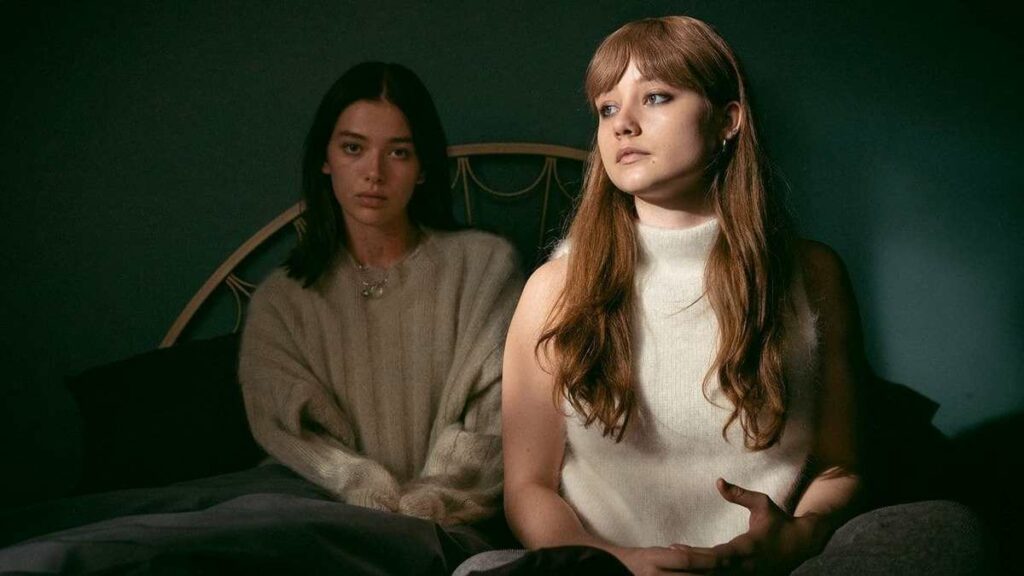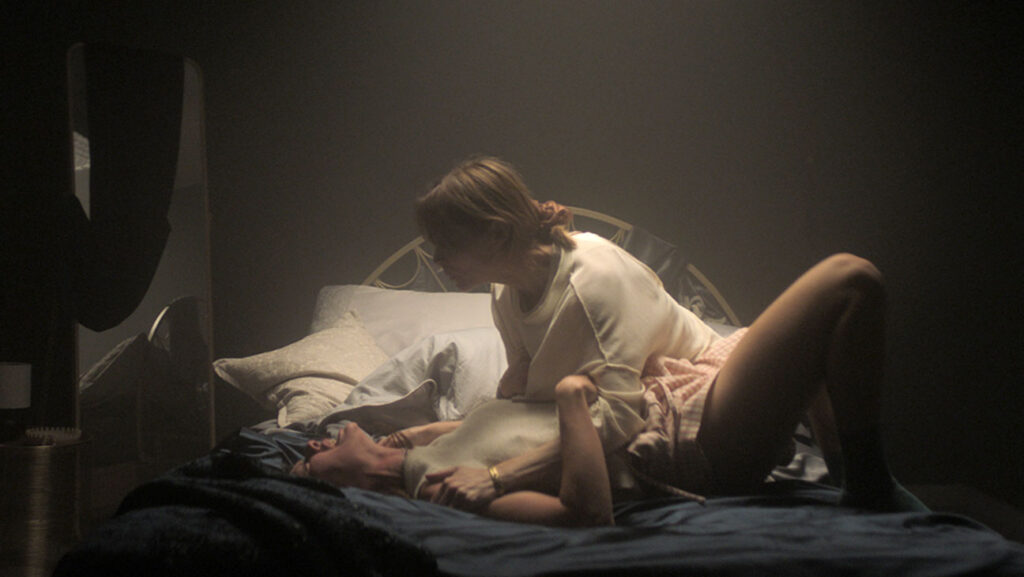After being starved for so long, audiences are now gorging themselves on top quality horror films directed by women. From Saint Maud and Censor to Titane and Fresh, this tasting menu of psychological terror continues with Ruth Paxton’s feature directorial debut, A Banquet.
Widowed mother Holly (Sienna Guillory) is pushed to breaking point when her daughter Betsey (Jessica Alexander) develops an extreme eating disorder and claims she has experienced profound enlightenment, in which her body is in service to a higher power. Possessed by Betsey’s illness, her family are faced with an agonising dilemma, torn between love and fear, while Holly is forced to confront the boundaries of her own belief.

Movies that feature the boogeyman or other fantastical creature might rile up some scares, but it’s a feeling that quickly dissipate upon leaving the cinema. We know those imagined horrors cannot hurt us; true horror lies in the familiar, when it invades our home and resembles those close to us. The turmoil Holly experiences could be, or have been, felt by any one of us: the guilt of not being able to help her husband through his illness, for it to be followed by her daughter disappearing before her very eyes.
Paxton and screenwriter Justin Bull keep the true source of Betsey’s affliction suitably implicit. Refusing to give concrete answer allows the audience to come to their own conclusions. Is it anorexia? Another kind of mental illness? Or is it demonic possession, as Holly’s mother June (Lindsay Duncan) theorises?
That doubt and suspicion filters through to the rest of the family. While Holly is at her wits’ end, the rest of family are not so sure. Younger sister Isabelle (Ruby Stokes) believes it could be a cry for help or stem from a desire for attention, while her grandmother suspects Betsey is lying, having witnessed similar manipulative behaviour in the past.
Paxton makes excellent use of sound to enhance the feeling of unease and unrest. Another stand-out aspect is in A Banquet‘s use of colour; the house is a sterile environment, all blues and greys. The only instances where vivid colour enters the palette is when food is present, heightening its centrality. Those scenes, often set around the dinner table, are emotionally charged and showcase the growing fractures between family members. Much like food, if not shown care and love, family too can become rotten and stomach-churning – one scene in particular will make you never want to eat peas again.

Alexander delivers an astounding, star-making performance as Betsey. The manner in which she uses her physicality to manifest her condition is reminiscent of Jennifer Carpenter’s breakout turn in The Exorcism of Emily Rose. In fact, the entire roster of women that make up this dysfunctional family are faultlessly portrayed.
But while A Banquet weaponises its ambiguity to great effect, the film’s final act feels undercooked. The ending will certainly not be to everyone’s taste, with some satiated while others will undoubtedly be hungry for more. Yet in spite of the divisive ending, Ruth Paxton demonstrates a huge amount of skill and understanding of tone in her creation of the film’s atmosphere, weaving together an intelligent, thought-provoking horror. With A Banquet, Paxton asserts herself as a director to watch.
A Banquet is in cinemas from March 11th.
